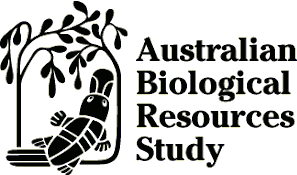Australian Tropical Rainforest Plants - Online edition
Guioa lasioneura Radlk.
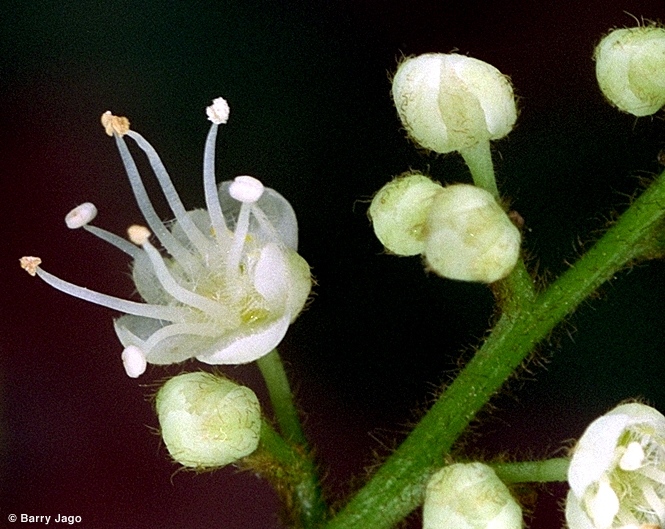
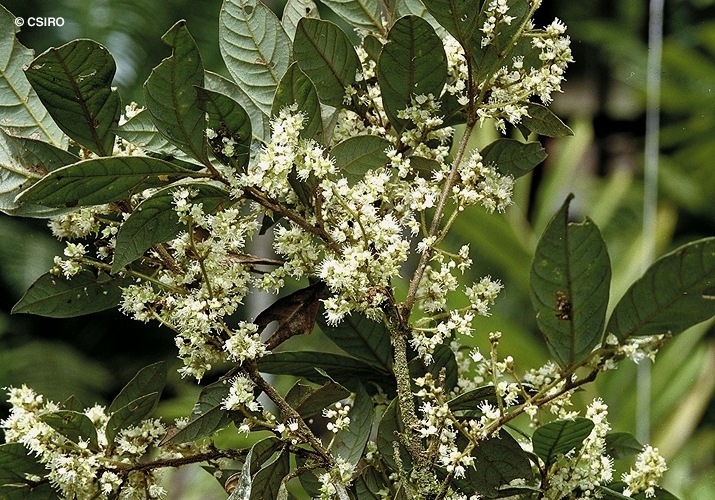
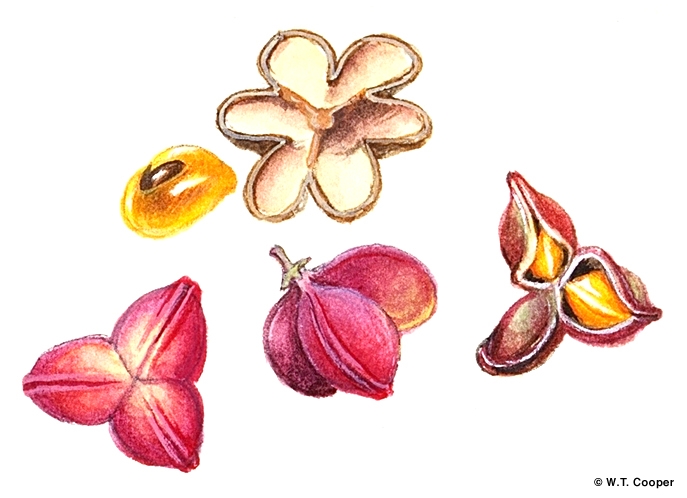
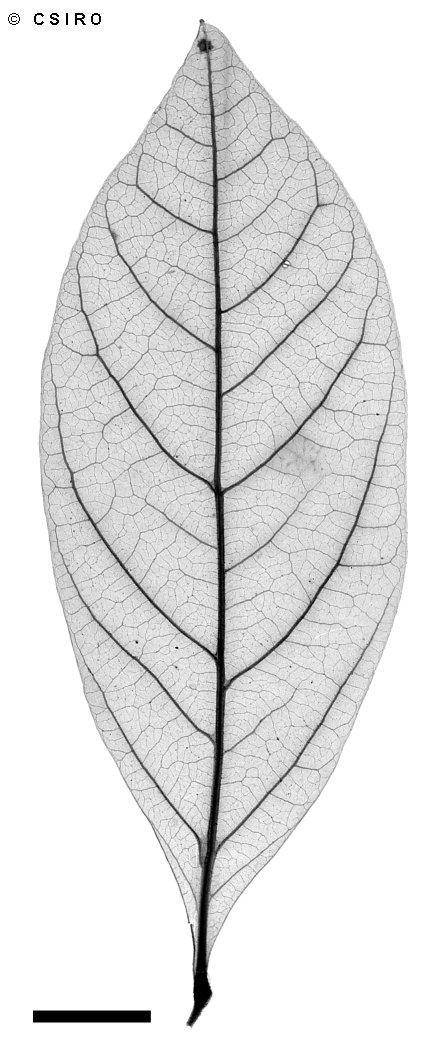
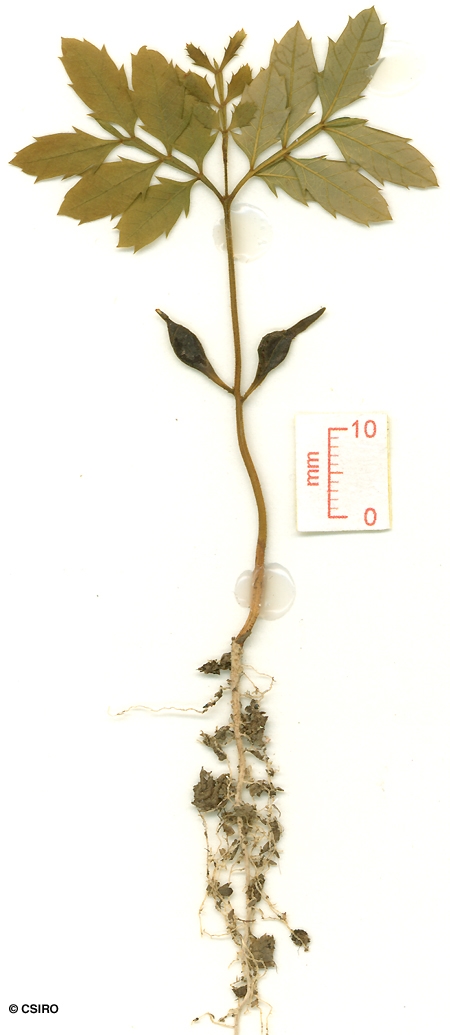
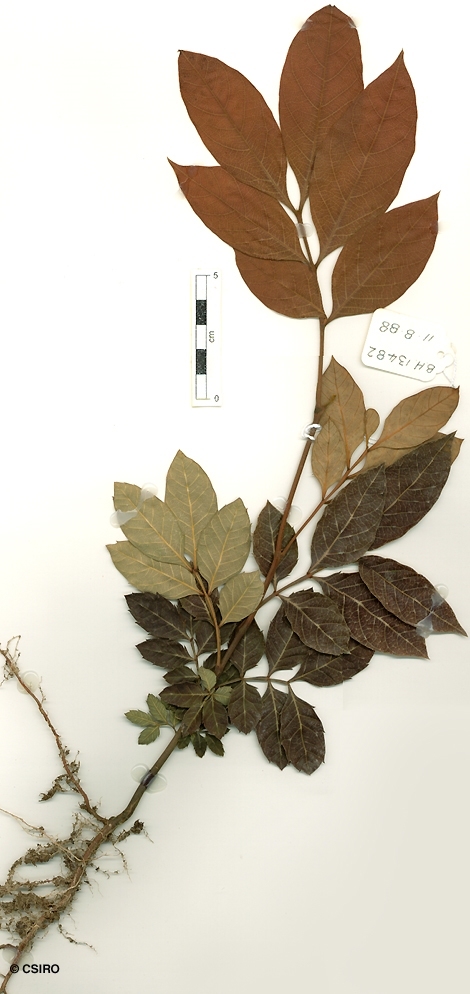
Radlkofer, L.A.T. (1879) Sitzungsberichte der Mathematisch-Physikalischen Classe der k. b. Akademie der Wissenschaften zu Munchen 4 : 608. Type: Australia orientalis: Dallachy (Rockingham Bay).
Silky Tamarind; Tamarind, Silky; Woolly Nerved Guioa
Sapwood surface corrugated.
Leaflets sessile or with very short stalks about 0.2-0.5 cm long, swollen at their junction with the rhachis. Leafy twigs and compound leaf rhachis with a dense covering of brown hairs. Usually 2-4 leaflets in each compound leaf. Leaflet blades about 3.5-12.5 x 1.5-4 cm. Midrib hairy and raised on the upper surface of the leaflet blade.
Cotyledons fleshy, without venation, apex acuminate. First pair of leaves with opposite or alternate leaflets, margins finely serrate. Petiole and rhachis winged and hairy. At the tenth leaf stage: leaflet blades +/- elliptic, apex acuminate, upper surface with a few hairs along the midrib. Seed germination time 7 to 15 days.
Endemic to Queensland, occurs in NEQ and CEQ. Altitudinal range from sea level to 1000 m. Grows as an understory tree in well developed lowland and upland rain forest.
Orange arils eaten by Speckled Fruit Bats and several species of birds. Cooper & Cooper (1994).




